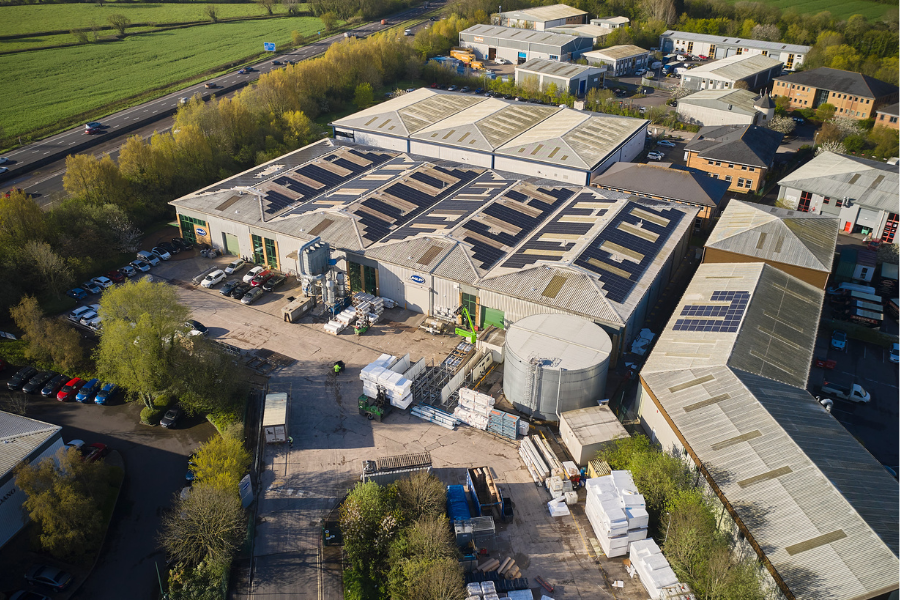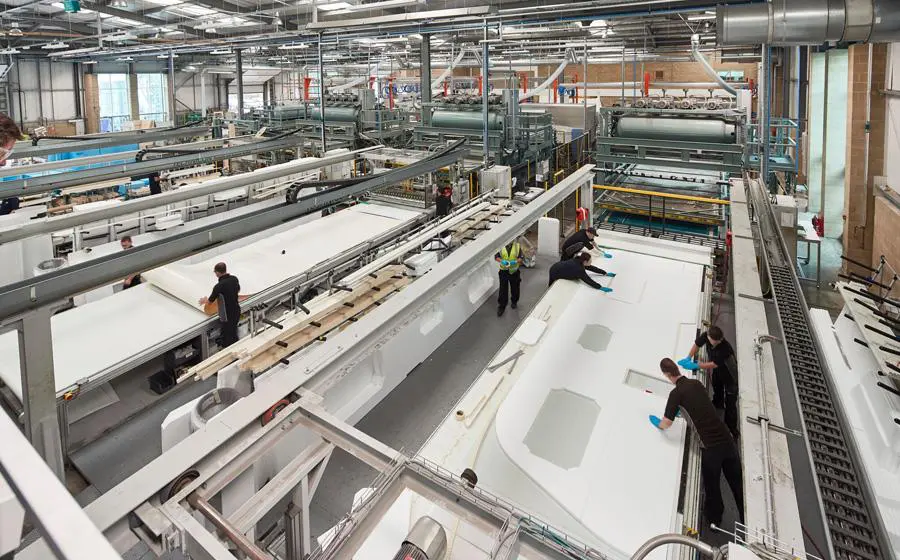Bailey of Bristol invest £400k in new solar panel array for its large panel laminating plant in Clevedon

The new roof mounted installation consists of approximately 800 individual panels and is capable of generating 333 kilowatts of energy by harnessing the power of the North Somerset sunshine – which is equivalent to approximately two thirds of the annual power requirement of this facility. Installed by local company Your Eco Construction, based in Frome Somerset, the total cost of this exercise was £400k with costs expected to be recouped over the next four years.
Bailey of Bristol’s aim in future is to become a carbon neutral business and this installation is the latest in a number of initiatives which the company has undertaken to help achieve that goal
The plant itself is a 3,250+ sqm modern manufacturing building which accommodates four fully automated laminating lines capable of producing 1,500+ body shell panels (floors, sides, and ceilings) per week. The manufacturing process begins with the assembly of the panel components on a laser-guided jig for improved accuracy and consistency. This assembly is then bonded together using a bead application system featuring a water-based agent to provide a superior bond before the panels are then individually loaded into separate ‘multi-daylight’ vacuum presses again to maximise bond integrity. Once the lamination process is complete, the resulting body shell panels are machined for final assembly on a fully automated CNC Router.
As a result, this state of the art facility is now capable of producing a finished fully laminated body shell panel every two minutes, making it one of the most advanced plants of its kind in the industry.

Managing Director Nick Howard commented “This new solar panel installation reaffirms our commitment to taking the positive action required to help us achieve our sustainability and social responsibility goals.”
“In future the laminated bodyshell panels which go to make up our caravans and motorhomes will be manufactured, partially at least, using the power of the North Somerset sunshine” he added.
*The Greenhouse Gas (GHG) protocol is a set of internationally accepted standards of measuring and reporting emissions. The guidance categorizes emissions activities into different scopes for accounting and reporting purposes.
The GHG Protocol has defined three scopes of emissions which are essentially who ‘owns’ those emissions and how much control a company has to change or influence them:
- Scope 1 covers direct emissions from owned or controlled sources, like the gas used to heat a building or the fuel used in the company’s fleet of vehicles.
- Scope 2 covers indirect emissions from the generation of purchased electricity, steam, heating and cooling consumed by the company.
- Scope 3 includes all other indirect emissions that occur in a company’s value chain, like the emissions from commuting to work, or purchased goods and services
Latest news & events
See all news & eventsSwindon, Oxford & Reading Caravan & Motorhome Group January Promotional Event
Campbells Caravans and Motorhomes Winter Weekend Showcase
WATKIN LANE, LOSTOCK HALL, PRESTON, LANCASHIRE



